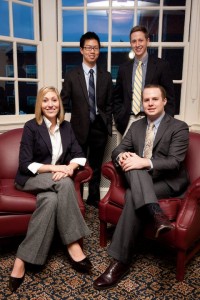To the editor:
I just opened up the editorial section of The Bucknellian and was humored by the lively response on the “Gun Policy” (“Tuscon tragedy shouldn’t affect gun control policy,” Feb. 2) by Alexander Riley to editorial writer Amanda Ayers. While the editorial opinion piece may have lacked pertinent details supporting the enforcement of existing gun laws as written, it nevertheless adequately supported the second amendment and the founders’ intentions. The response, on the other hand, while well intentioned, was an unfortunately predictable piece riddled (no pun intended) with holes, emotion and misguided logic.
Let us first start with the “obligatory” reference to the founders, who he wryly remarks “we are told liked guns.” While it is historically debatable what the founders’ personal likes and dislikes were, what is clear is that the “invitation to struggle” that became the U.S. Constitution was brilliantly framed to limit powers of each branch of government and, more profoundly, to outline protections of its citizenry by listing what a government writ large could not control. The Federalist Papers and Anti-Federalist Papers leading up to the Constitutional Convention clearly followed one key vanguard that was codified into law – an inherent and wise distrust of what often develops when centralized power devolves to tyranny over its citizenry. Mr. Riley accurately identifies social norms that did not track with later values in the 19th and 20th centuries, and they were rightly corrected through the amendment process. He incorrectly draws parallels that evolving social norms now must be aggressively applied to gun ownership, and that drafting additional laws to restrict lawful gun ownership is essential, presumably regardless of whether or not they progressively whittle away at a constitutional right with a clear endgame. The follow-up questions then become: is a deliberate journey to undermine the Second Amendment and slowly prevent lawful gun ownership by citizens the right path? Is private gun ownership in and of itself an outdated concept in the modern world? Ask the Korean-American business establishments during the L.A. riots or, perhaps more recently (albeit abroad), the Green movement in Iran what they think on this subject.
Mr. Riley also conveniently skips details in his argument, like the magazine bans that have occurred elsewhere, previous “assault-looking” weapons bans and other laws that have had in fact adverse impacts on crime; that cities with the most restrictive anti-gun laws like Washington D.C., Detroit and Los Angeles have experienced increases in gun violence when the “bad guys” became the only ones who are carrying them. Conversely, numerous other cities have experienced the reverse when concealed permits were increased.
The shooter in the Tucson tragedy, certifiably insane by any measure, was in fact already in violation of numerous gun laws already in place, and he will no doubt suffer the consequences for his actions. Yes, the “man” did do the action, and yes, a large clip enabled him to carry out this crime with ruthless efficiency and violence. What Mr. Riley omits is that someone of this mind, already in violation of the law, could and likely would have resorted to other measures such as a homemade bomb, an automobile, rat poison or any other imaginable means with equally deadly efficiency, precision and murderous results. Sociopaths do these things, hence the name, and a reactive and alarmist response (with a political agenda behind it) to such horrors makes for bad broad policy and further limits rights, like it or not Mr. Riley, that are in fact guaranteed under the Constitution. I wonder what Mr. Riley’s response would have been if a private citizen legally carrying a firearm had downed this sociopath, as has occurred at other crime scenes. No mind, he was on a roll. “The Germans were bombing Pearl Harbor,” as John Belushi so eloquently pointed out in “Animal House.”
Let us next look at the “more Americans died between 1965 and 2000 from firearm accidents than were killed in the entire duration of the Vietnam war” argument. Perhaps based on that we should outlaw cars, motorcycles, power tools and lawnmowers, which data show clearly have killed more Americans than either Vietnam or firearms. Perhaps the most disturbing remark of the response, however, was, “It is depressing to see how frequently, in this country where education levels are so high, and even in a university like this one where students must excel academically just to gain admission, the falsehoods of the extremist gun lobby are uncritically reiterated in this manner.” Translation: even though you must be “book smart” to get into a school of this caliber, you are nonetheless ignorant to disagree with me (in upholding the Constitution) … perhaps in time you will become more “enlightened” (as I am) and see the real truth someday as it is outlined in partisan writings of like-minded individuals. Wow, I guess those founders really didn’t know what they were up to.
Katherine Bourque

